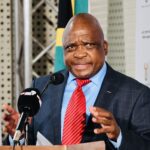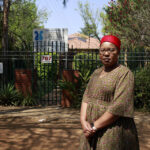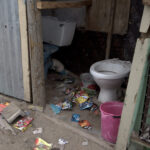A month after she was wheeled out of a North West hospital in a barrow, Ntombizodwa Matthews met her end. Her family blames politics for her death.
The singing stopped when the six men lifted the coffin to their hips to carry it from the small marquee tent to the hearse waiting in front of the gate.
It was five days after Ntombizodwa Matthews had died of breast cancer.
Slowly, in a dark wood coffin, Matthews’s body passed through the two rows of congregants, forming a guard of honour.
There was a yellow and white wreath on her casket, which resembled the yellow daisies twisting in the gusting wind in her family’s backyard.
Matthews’s nine-year-old daughter, Olerato, looked oblivious. She was wearing a maroon dress with a navy jacket and diamante shoes and was smiling.
Three of Lomanyaneng village’s priests were leading the way in Matthews’s last journey amid Mahikeng’s red-coloured dust.
It was Sunday, May 20.
At the cemetery, about 2km from the family’s home, Olerato and her young cousins looked on curiously as their mother’s and aunt’s coffin was lowered into the earth.
“She is a smart and jolly girl. She doesn’t deserve to be motherless,” says Olerato’s uncle, John Rutiri. “If our hospitals were working properly, her mother could have gotten a chance to live.”
Exactly a month before Matthews’s funeral, staff instructed her family to fetch her from Mafikeng Provincial Hospital. Services had been halted because of political and union protests. Matthews couldn’t walk or talk and her family wasn’t allowed to take the hospital wheelchair home. They had to load her into a wheelbarrow and push her home.
Earlier that week, violent protests had erupted in Mahikeng, where residents were calling for then-premier Supra Mahumapelo to resign amid allegations of corruption.
On Wednesday, he finally stepped down, announcing his “retirement”.
But for Matthews it was far too late.
“Now Olerato has to remain in the same poverty her mother died in,” Rutiri explains. “The politicians have gotten to a place where the people matter less. It’s a game of egos.”
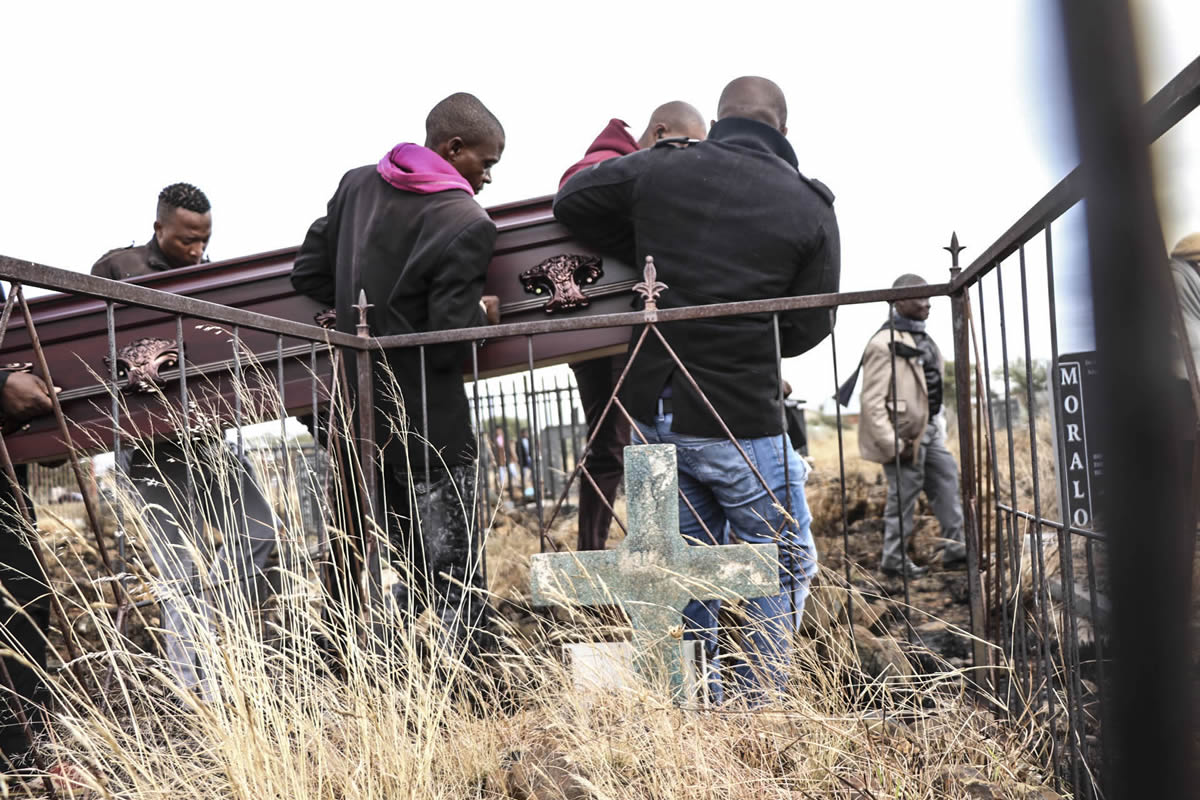
“The family might actually be right, if they’re referring to what happened in the North West, where unions said they’re not going to go to work until the premier had been removed,” admits Health Minister Aaron Motsoaledi.
“I can’t challenge a person who sees that [politics’ impact on health services]. It’s a very painful thing and we’d like that to come to a stop immediately.”
Protests broke out in North West in mid-April. Burning tyres, shuttered clinics and barricaded hospitals were the climax of a two-month-long provincial go slow by members of the National Health Education and Allied Workers Union (Nehawu).
Workers say the union was forced to act after the provincial government had ignored allegations of corruption and poor healthcare delivery for more than a year. Nehawu and the Democratic Nursing Organisation of South Africa eventually instructed members to stay away from work out of concern for their safety.
“Their grievances were completely valid,” says Ebrahim Variava, a North West public sector doctor and adjunct professor with the University of the Witwatersrand. “Many of the protesters were counsellors and other healthcare workers rather than professional nurses or doctors. A lot of striking individuals were probably among the most exploited because they were getting stipends of R2 000 to R2 500 a month.”
For people such as Matthews, the protests meant almost no access to health services. Her family says she was repeatedly told there was no “breast doctor” to help her at the hospital.
“If Supra was standing in front of me now, I would tell him that the death of my sister is his fault,” says Nomvula Matthews. “He is to blame for all of this.”
But badly, often politically motivated, procurement services and poor appointments were problems even long before protests.
Suspended North West health department head Thabo Lekalakala has, for instance, admitted to paying a Gupta-linked company, Mediosa, R30-million upfront before it started operating mobile clinics.
Lekalakala has also confessed that Mediosa financed a trip to India for him and other health department officials after the R30-million payment was made.
He was suspended in April.
Cabinet placed North West under administration in late April and appointed a task team, which included Motsoaledi, to assess the province.
Under section 100(1) of the Constitution, the national government may intervene in a province — or put it under administration — if it does not fulfill its “executive obligation in terms of the Constitution or legislation” but there are limits to ministers’ powers.
Motsoaledi says he warned Mahumapelo against appointing Lekalakala, but his hands were tied because “the law doesn’t require premiers or MECs to take orders from ministers”.
Before working for North West, Lekalakala was the director of hospital management and planning in the national health department.
“I pleaded with him because I knew Lekalakala couldn’t run a directorate. What more of a province?” Motsoaledi told Bhekisisa. “But the issues of human resources or who gets appointed and at what level is not in my hands. If there’s nepotism politically, it’s very difficult. The premier has the mandate to appoint provincial staff.”
The North West health department has also awarded the controversial private ambulance company Buthelezi Emergency Medical Services (EMS) a tender to transport patients between health facilities in the province.
According to the publication Spotlight, published by the public law interest organisation Section27, the provincial department pays Buthelezi EMS about R20-million a month.
But it has since emerged that Buthelezi EMS provides low quality services at hugely inflated prices. In April, Motsoaledi asked the national treasury department to investigate how the company was appointed.
“Procurement is the bone of contention in North West,” Motsoaledi argues. “But I only come in as a sort of postmortem, because there is no mechanism for me to intervene before these things happen. Like human resources, procurement is controlled provincially.”
The minister says the only “tools” he can use to get provincial health departments to work with him is “goodwill”. “Intervening sometimes does happen, but not with the full backing of the law. It happens maybe with some political gravitas, or goodwill, or humanity, or a sense of co-operation.”
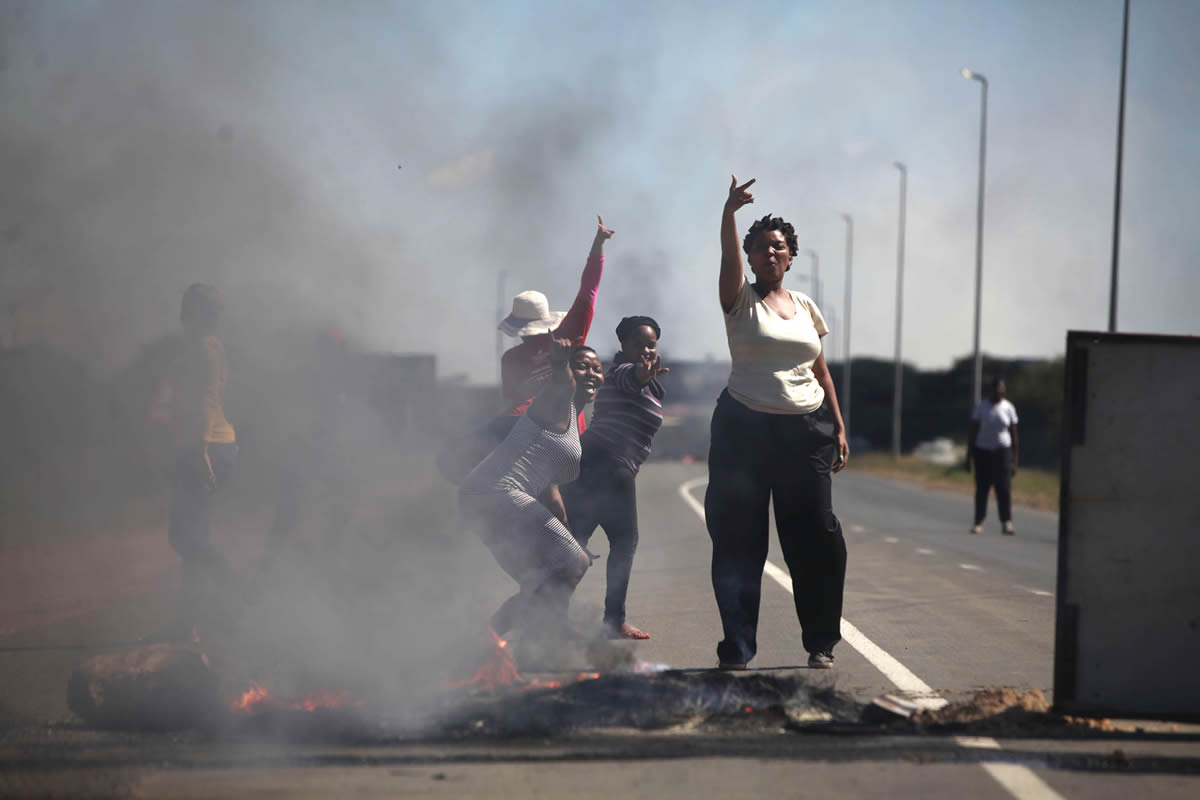
Until now, the ANC has had an implicit “gentleman’s agreement” between its officials in Pretoria and those in the provinces to keep the peace, says political analyst Ralph Mathekga. It was party dynamics, not legislation, that provided for this.
“It’s important to understand that things have been smooth not because institutionally they are provided to be that way, but because there was a consensus within the ANC,” he explains.
“What we are seeing in the North West is an indication that, at a central level, the ANC is becoming weaker and the regions stronger.”
Provincial health departments have a long history of being placed under national administration in South Africa’s short democratic life. Half the nine provincial health departments have been placed under either national or provincial administration in the past seven years.
For national ministers, the only alternatives to “section 100 take-overs” is to wield softer forms of power, use political influence as Motsoaledi suggests, or their positions on national budget committees that allocate funding as leverage over recalcitrant premiers, Mathekga explains.
It’s a reality that even President Cyril Ramaphosa seems to recognise: “The North West taught us that national government must be more involved in assisting our provinces and giving effect to the constitutional principle of cooperative governance,” he said this week in his presidency budget vote speech.
But if ANC factionalism has emboldened provinces, they may be increasingly likely to litigate to fight off national administration, Mathekga says. “The irony of this is that it should have been the ANC at a national level holding Supra to account, but power is becoming more regionalised and people are demanding more immediate accountability.”
Mathekga concludes: “Democracy, by nature, entails decentralisation of power. South Africa is going in this way. In the long run, it’s actually good because it will bring more accountability. South Africa is effectively becoming more federal than we are willing to admit.”
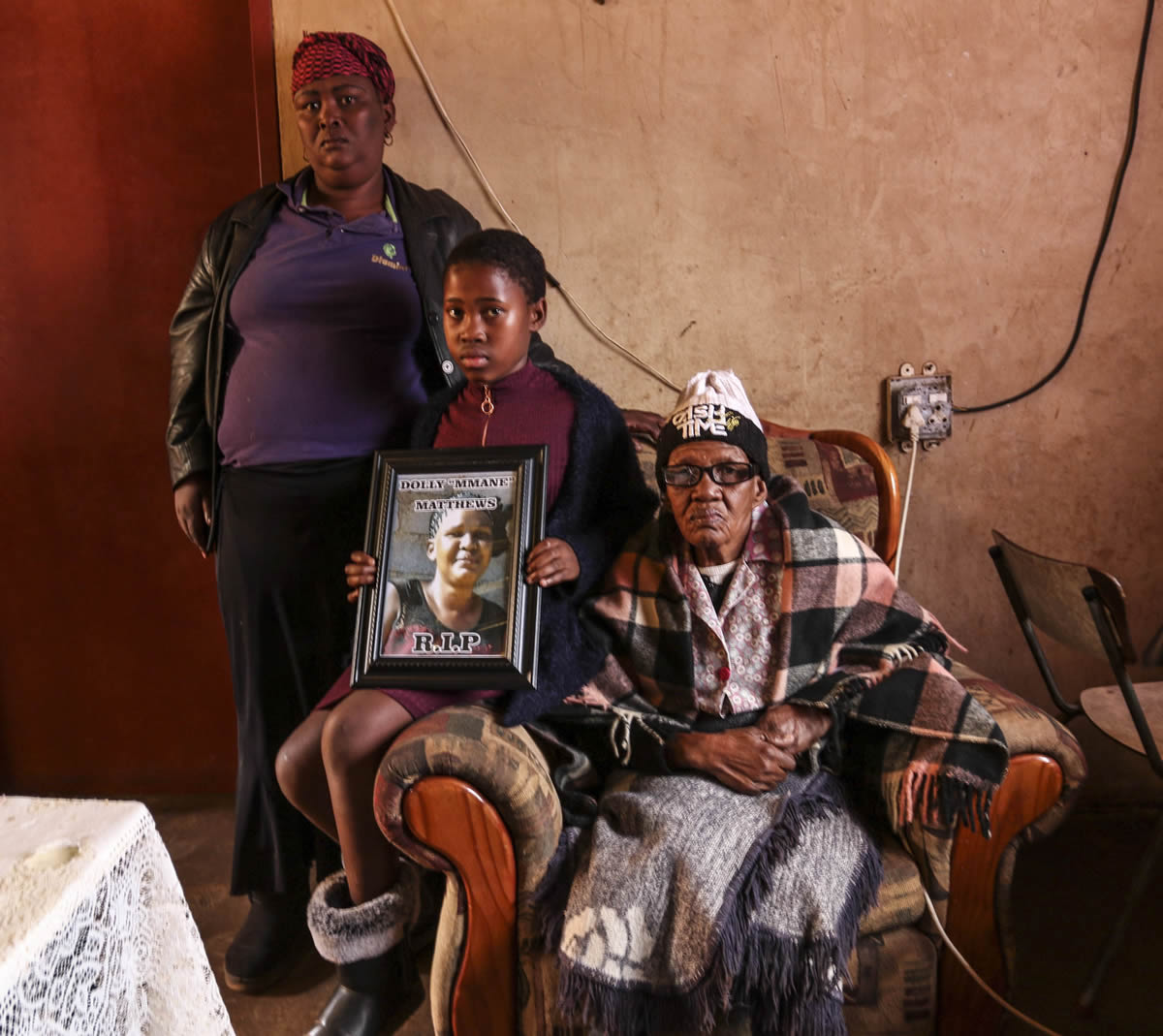
Almost 170km away from Mahikeng, North West’s lone radiation oncologist fights mounting backlogs. The province only has one specialist qualified to perform radiation therapy for cancer patients. This type of treatment is needed in about half of cancer cases, a 2012 study published in the International Journal of Medical Sciences found.
Some patients have waited as long as five years for treatment, says Adele Botha, the North West divisional manager for the Cancer Association of South Africa.
“With only one oncologist, cancer treatment here is impossible,” Botha says.
South Africans have a 19% chance of developing cancer before they turn 75, according to 2012 data from the World Health Organisation’s International Agency for Research on Cancer. This means North West’s sole specialist could be left to treat more than 660 000 patients.
The province sends some patients to Gauteng for treatment, but many others will languish on waiting lists.
Matthews’s family says she wasn’t even placed on such a list. No one told them she had breast cancer. This diagnosis was only confirmed when Bhekisisa enquired with the provincial health department.
“We work very hard to get people screened for cancer. We then send them to clinics and hospitals, but they just get stuck there. They won’t get treated, or even diagnosed in time,” Botha says.
“They’ll get stuck there in the queue, and just become a number.”
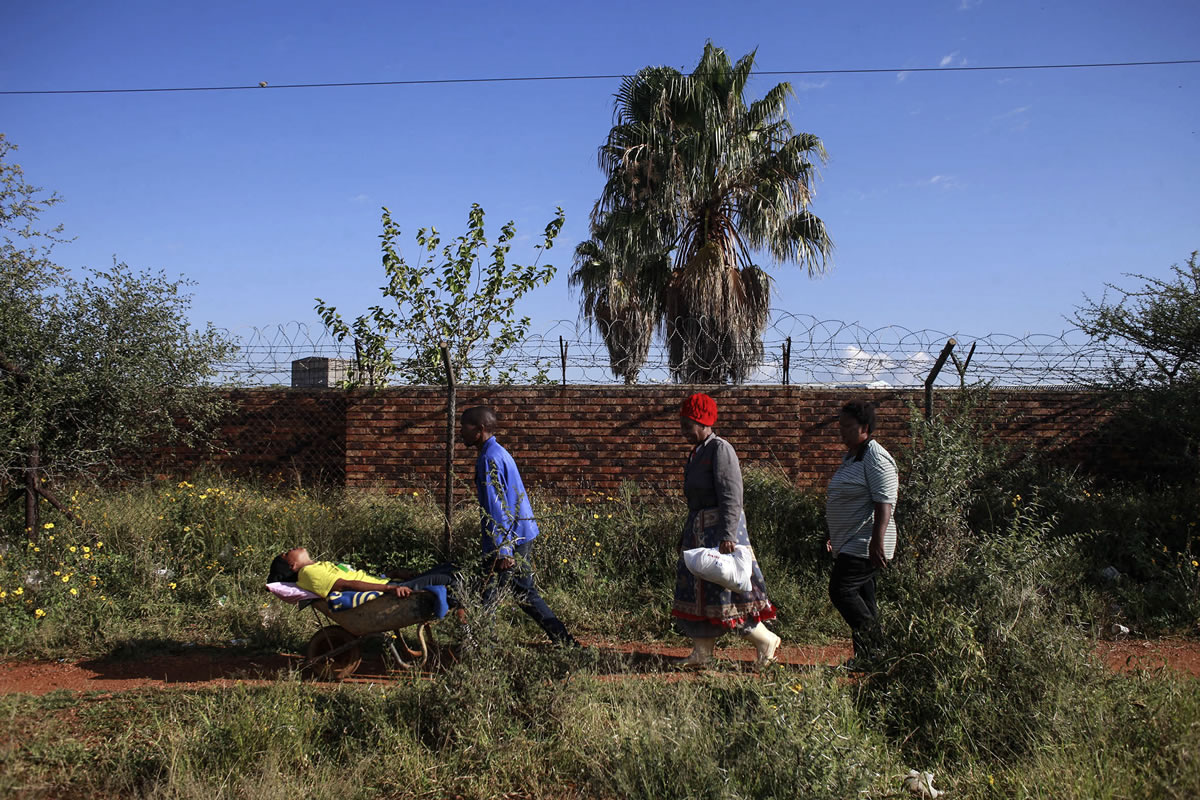
The impact of politics on health systems isn’t confined to North West. It’s a national issue.
The country’s National Health Insurance (NHI) white paper, which is expected to be presented to the health portfolio committee on Tuesday, suggests changes to at least 10 different legislations, including the National Health Act as well as major changes in how health is funded and services are purchased. Some argue that even constitutional changes may be required.
Central hospitals will be reformed to be semi-autonomous and become managed by the national health department.
“You can forget about universal health coverage, in the form of the National Health Insurance scheme, if they [Parliament] don’t pass the Act as we are proposing it. [If they don’t] we’ll make noise about the healthcare system in the country every year, but never get it right,” Motsoaledi warns.
“Part of the reason why private healthcare is of a good quality in South Africa is because there is a provider-purchaser split, meaning the person who purchases the services is not the same as the ones who provide them,” he explains.
“In the public healthcare system, provinces provide services and also purchase them. That needs to change. The NHI will buy the services provided by provincial health departments, but also from private healthcare departments. So there will be more competition.”
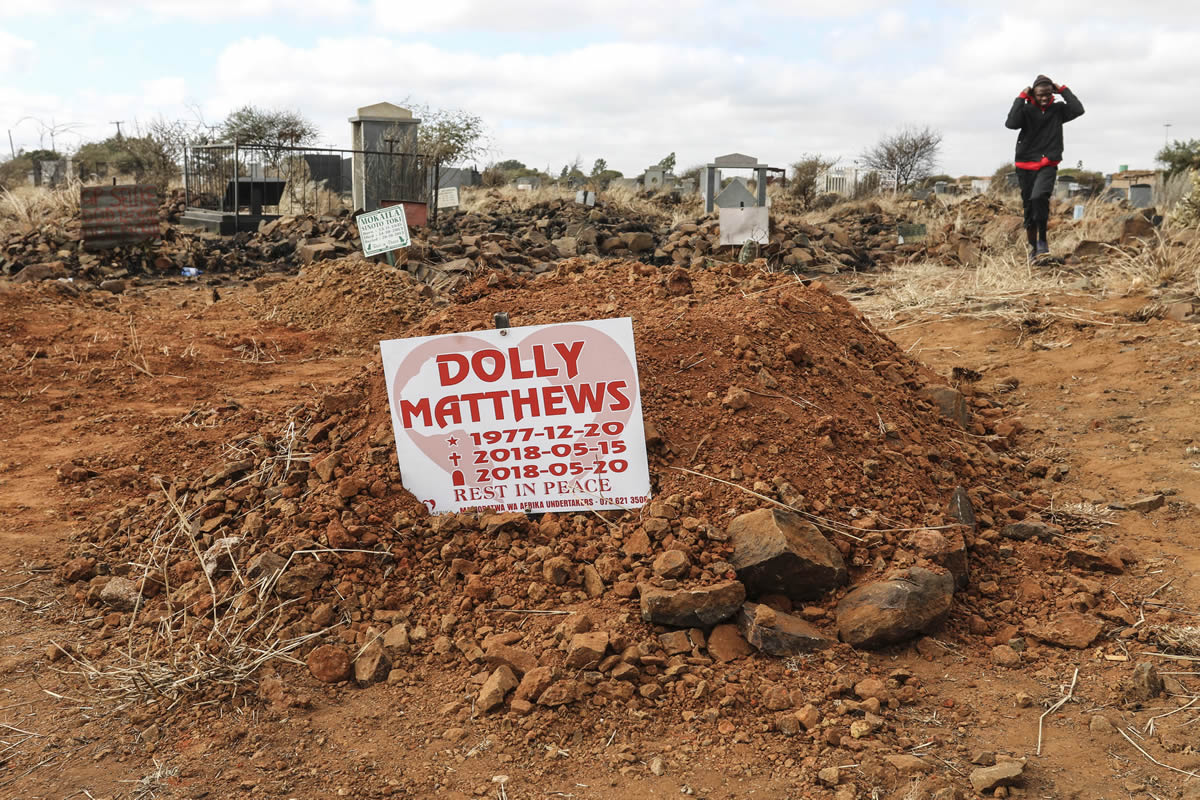
On the Tuesday that Matthews died, her mother followed the 2km pathway through Lomanyaneng village to the hospital. She arrived at the hospital about 30 minutes before her daughter’s life ended.
But she was turned away.
“It’s not visiting hours,” the hospital staff said. She pleaded and begged, but it didn’t help.
Back at home, at more or less the same time, Matthews’s sister received a phone call from Mafikeng Provincial Hospital.
“Your sister has just left us,” the nurse said.
Nomvula rushed to the hospital. All she could think about was her mother.
“I was scared that they would tell her that and she would faint,” she says.
When the two spotted each other, somewhere between thehospital and their home, Nom-vula’s mother started wailing and crying.
“I knew my child was dead. I could feel it in my spirit,” Mme Keitheng remembers.
At home, Matthews’s cousin John Rutiri wondered: “If we were rich, would we be here burying her?”
Nomvula put her arm around her mother and got her some water. Olerato was at school.
“When you’re poor, you’re not equal,” Rutiri said.
“When elephants fight, it is the grass that suffers.”
The North West health department did not respond to allegations in this story





